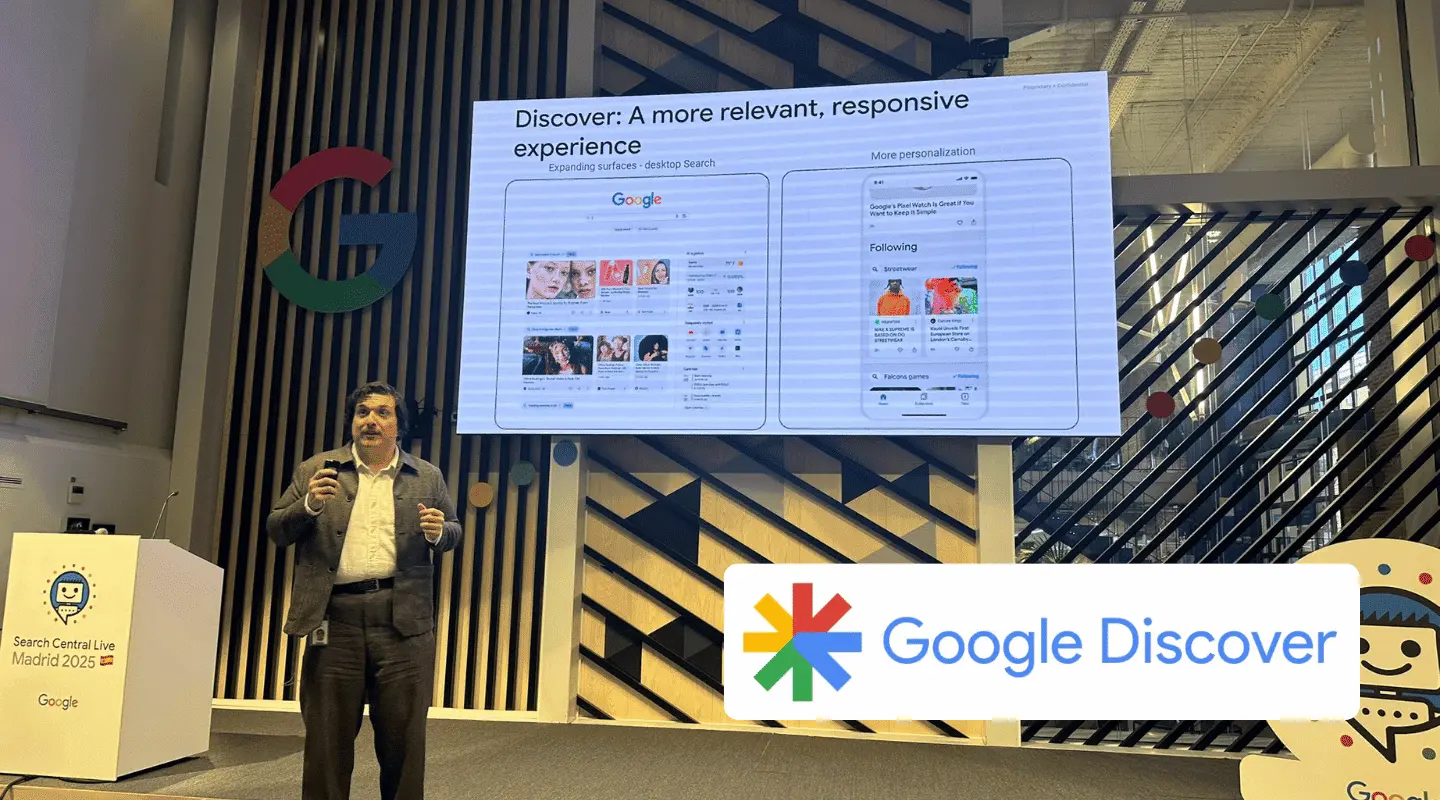
There’s a lot of buzz going around about a recent Google Search Central Live meetup that happened in Madrid on April 9, 2025. The folks at WebSensePro have been digging into the news surrounding this event, and we’re here to break it down for you in simple terms. Google dropped some major insights about AI, search, and what it means for website owners. Let’s dive into the top 5 takeaways!
1. Google’s Still All About Helping Users
Google made it crystal clear: their number one goal is to give users the best experience possible. Even with all the fancy AI stuff happening, search isn’t “done” yet. New platforms, changing user habits, and cool tech keep popping up, so Google’s always working to stay ahead. They’re also helping website owners with tools like Google Search Console and Google Analytics to drive traffic and grow online. Pretty user-friendly, right?
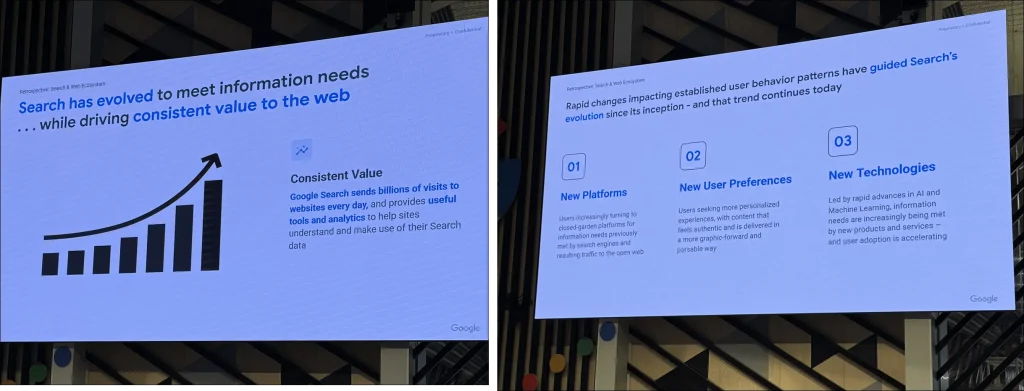
2. AI Content? No Problem, If It’s Helpful
Wondering if you can use AI to create content? Google’s John Mueller said it’s totally fine—as long as it’s valuable for your audience. But here’s the catch: if your AI-generated content is just fluff or trying to trick search engines, Google’s quality checkers might flag it as low-quality. This comes from their updated January 2025 guidelines. So, focus on creating stuff that actually helps your readers, and you’re good to go!
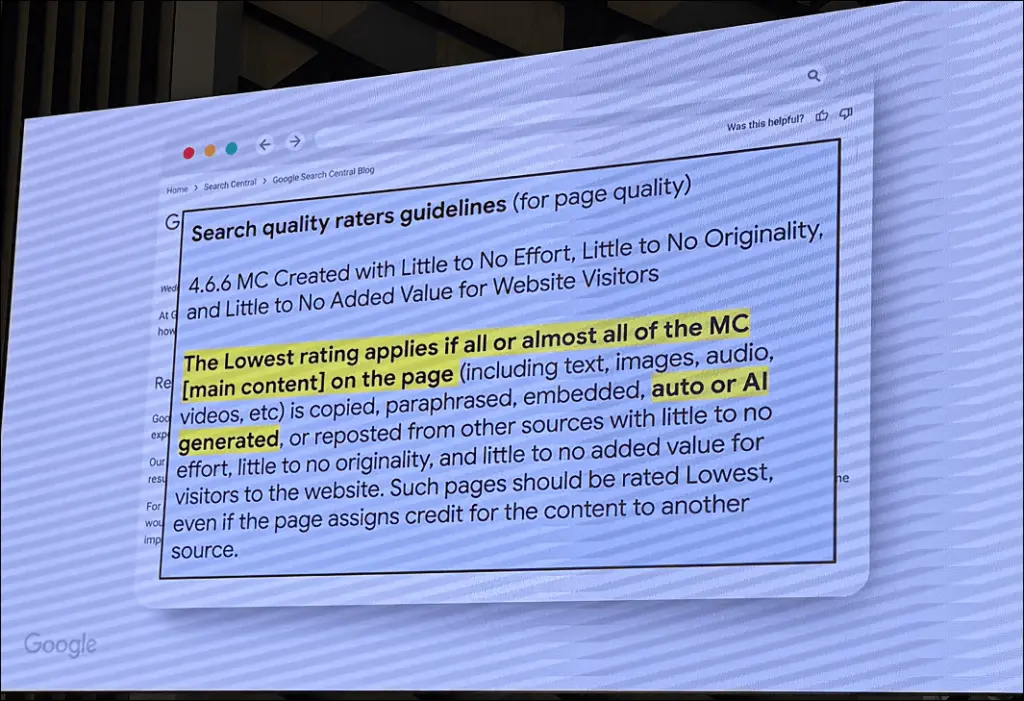
3. How AI Search and AI Overviews Function and Optimization Strategies
John Mueller detailed the integration of Large Language Models (LLMs) with search using Retrieval-Augmented Generation (RAG) and the grounding process for AI Overviews. He noted that opting out of AI Overviews is possible via the robots “nosnippet” configuration, as Google treats them as a search feature. Mueller clarified that no specific optimization is needed for Google’s AI features due to their novelty and evolving user behavior. However, he recommended using structured data for its efficiency and readability, focusing on elements visible in Search Engine Results Pages (SERPs).
Regarding LLMs.txt, Mueller explained it may be relevant for systems unfamiliar with a site but is unlikely to be considered by Google, given their extensive site data. Currently, no AI systems are known to use LLMs.txt. Additionally, Google’s extended robots.txt controls allow management of content used for training Gemini and Vertex AI. This is a user-agent token, not a crawler, and does not impact search indexing or rankings.
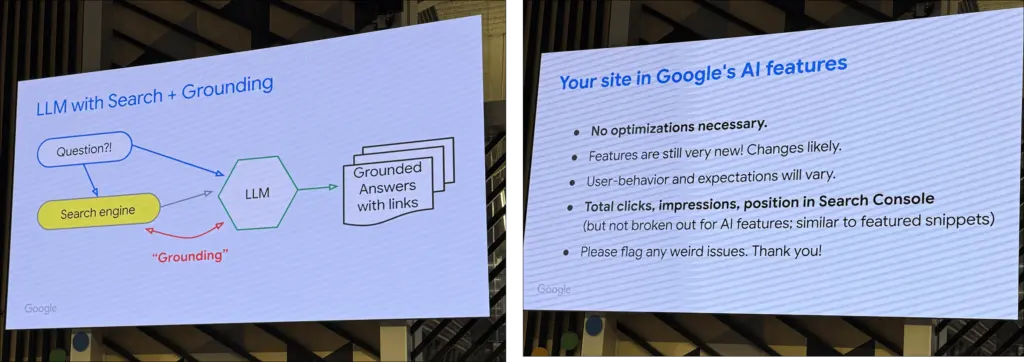
4. Keeping an Eye on AI Overviews Is Tricky
Want to know how AI Overviews are affecting your site? It’s not easy right now because Google Search Console doesn’t give much data on this. But don’t worry—Google’s working on better tracking tools, like updating data every hour, to help you see what’s going on. For now, just keep creating great content and stay tuned for updates!
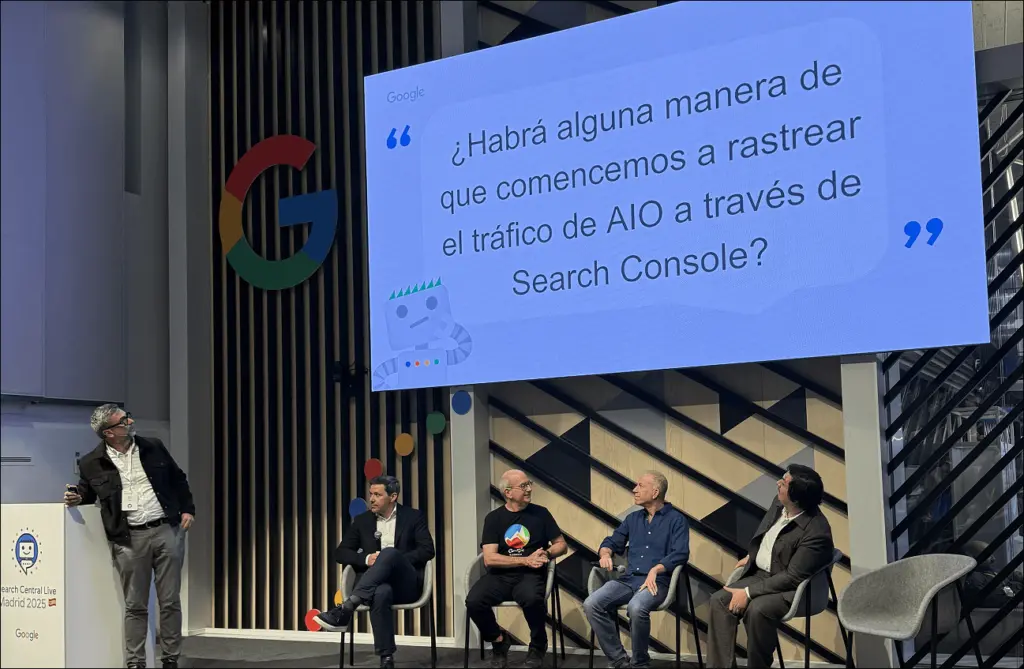
5. The Future of Search Is AI + Classic SEO
AI is shaking things up, but Google says the basics of SEO—like making sure your site is crawlable and indexable—are still super important. Think of it like this: AI is the shiny new toy, but the old-school SEO tricks are the foundation that keeps everything running smoothly. So, keep up with both to stay ahead in the game.
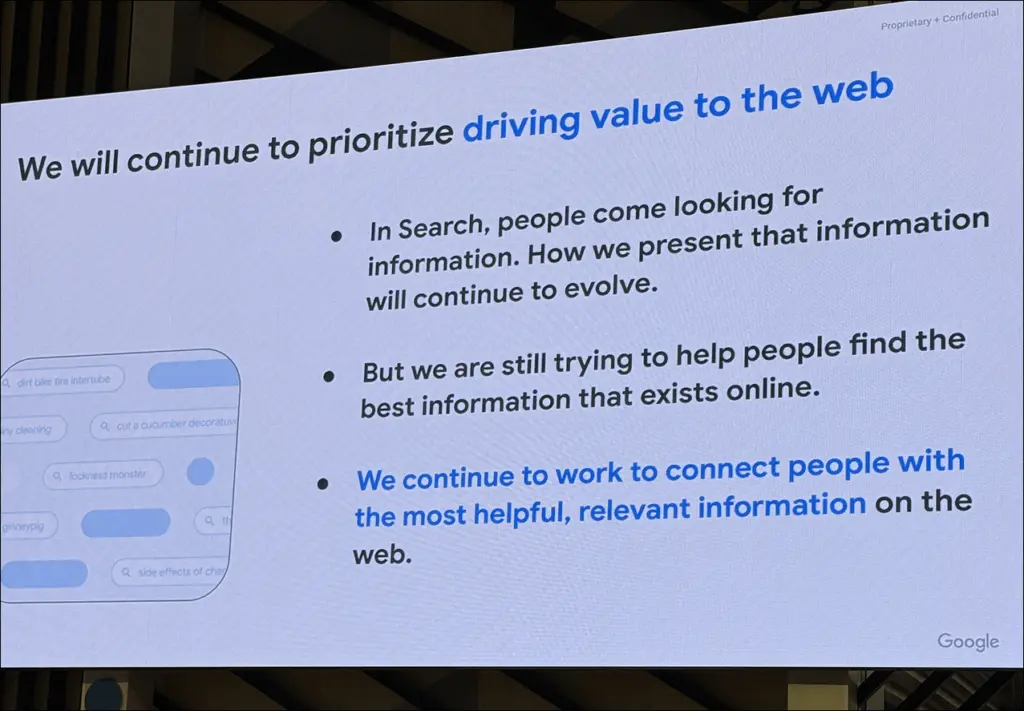
Why This Matters
The news from this Madrid meetup shows that Google is doubling down on AI while keeping users and website owners in mind. At WebSensePro, we’re excited to see how these changes will shape the future of search. Whether you’re a blogger, a business owner, or just curious about SEO, these insights are a reminder to focus on creating awesome content that people love.

